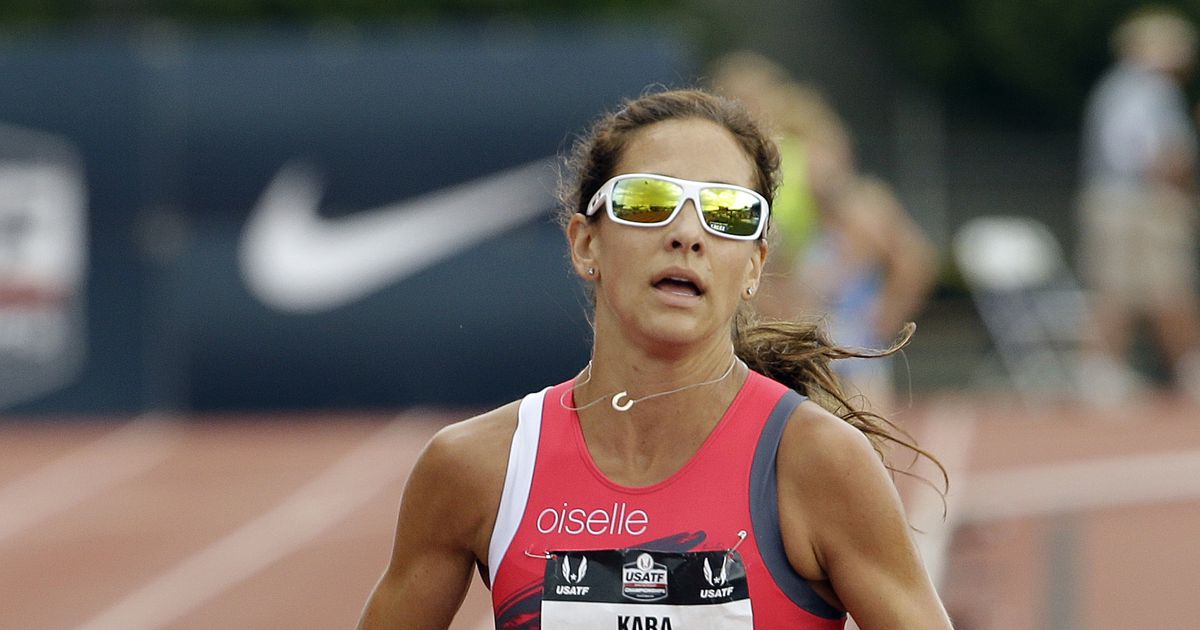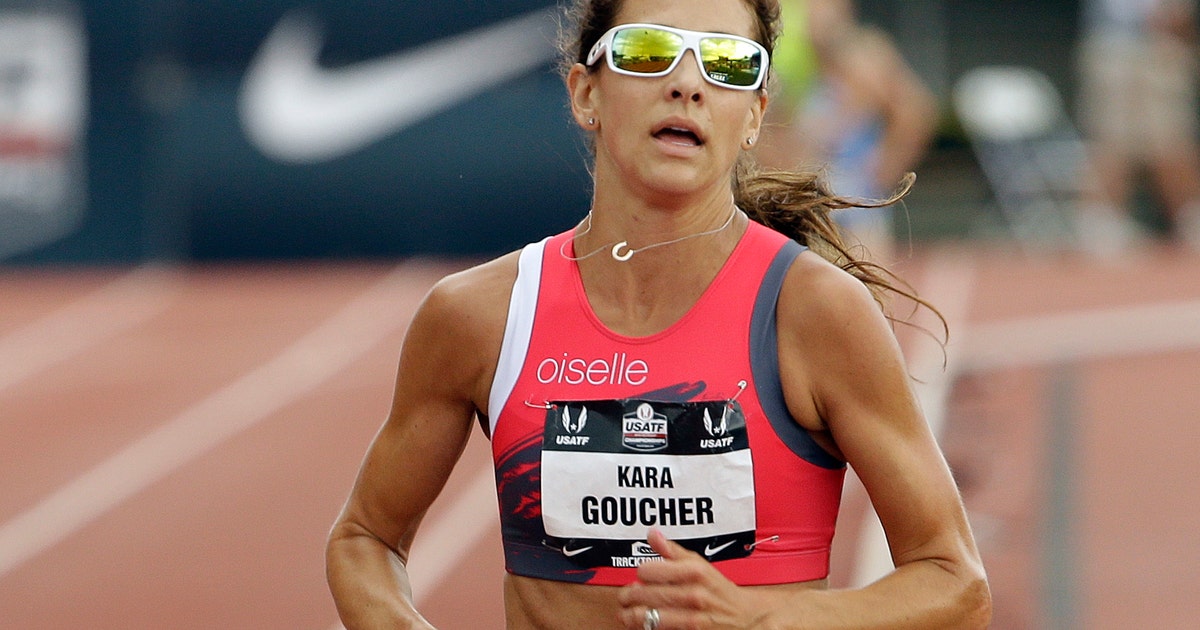Goucher hits the dusty trail for a new running challenge


Two-time Olympian Kara Goucher always figured taking up trail running would provide a wild adventure.
Just not this wild: Encountering a mountain lion at close range on a recent run. Like close-enough-to-touch range.
Spooked, the big cat turned toward Goucher before bounding away.
Also spooked, Goucher turned and high-tailed it out of there, too.
“Hopefully,” Goucher said, “that’s the last time I see one.”
Goucher is kicking up a little dust in her newest quest — trail running. Known for her racing prowess in distances from the 1,500 meters to the marathon, she’s taking part in her first trail marathon this weekend in Leadville, Colorado , on a route that ascends as high as 13,185 feet (4,019 meters).
“The No. 1 goal is to finish and enjoy the experience,” Goucher said in a phone interview from her home in Boulder. “But I’m competitive by nature.”
Name a distance, any long distance, and Goucher has no doubt trained for it. She had top-10 finishes in both the 5,000 and 10,000 at the 2008 Beijing Games. Four years later in London, she wound up 11th in the marathon. She also captured a bronze medal in the 10,000 at the 2007 world championships, only to have it upgraded to silver a decade later after a Turkish runner was disqualified for doping.
“I just kept moving up and up” in distance, said the 40-year-old Goucher, who was a seven-time All-American in track and cross country at the University of Colorado . “I feel lucky that my career has gone on this long. I’ve been able to stay healthy enough to experience all these different things.”
In January, she ran the Houston Marathon but dropped out after the 19-mile mark because of a hamstring injury. Soon after, she decided to embark on an off-the-beaten path — trail running.
“Challenging myself in a few ways and kind of facing fears,” said Goucher, who’s been logging about 80 miles a week to prepare for Leadville . “I mean, trails are scary for me.”
That’s because of the climbing, descents, rocky terrain and, of course, coming face to face with a mountain lion.
This is how the situation earlier this spring unfolded: Goucher was running in a neighborhood leading to the trailhead when she came upon what she thought was a “weird-looking dog.”
“Then I was like, ‘That’s a mountain lion!’” she said. “It happened so fast.”
She knew what to do in such a situation — stand tall, raise her arms, make eye contact — and promptly forgot.
“It all went out the window,” she said. “The worst thing you can do is turn your back.”
She sprinted to a nearby construction site while the mountain lion sprang in the other direction (“its footsteps were so powerful,” she recalled). Once her heart rate slowed, she called her husband, Adam Goucher , who picked her up and drove her to another trail.
In February, a Colorado runner near Fort Collins survived a mountain lion attack by wrestling the young animal to the ground and jamming his foot onto its neck to suffocate it to death.
“I was pretty shaken up for a couple of days but then I just got back on the horse,” Goucher said. “I haven’t really run on the trails by myself since then, but I’ve been back out plenty.”
These days, running is far from the only thing that fuels her. She and other athletes such as Alysia Montano and Allyson Felix are speaking out about the need for sponsors to support female competitors before, during and after pregnancy — that contracts shouldn’t penalize someone for starting a family.
“I just can’t thank Alysia and Allyson enough for lending their voices because you get a lot of criticism,” said Goucher , who ran the 2011 Boston Marathon 6 ½ months after her son, Colt, was born. “We’re on the right side of history on it.”
Goucher is also an advocate for clean sports (attending an anti-doping conference in London), organizes a high school girls camp and volunteers at her son’s school.
“It’s just living a little bit of a more full life,” Goucher said.
Make no mistake: She’s not closing the door on trying to make a future Olympic or world championship team.
“I don’t know if that voice will ever go away,” Goucher said. “My son was asking me the other day, ‘When are you going to retire from racing?’ I’m like, ‘Have you met me? Never!’”





